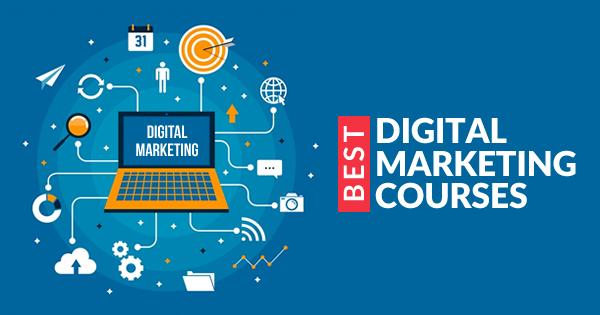
Introduction to SEM (Search Engine Marketing)
In today's digital landscape, search engine marketing (SEM) has become an essential strategy for businesses looking to increase their online visibility and drive targeted traffic to their websites. As a marketer or business owner, understanding the fundamentals of SEM is crucial to staying competitive in the ever-evolving world of online marketing and Digital Marketing.
SEM encompasses various techniques and strategies aimed at improving a website's visibility in search engine results pages (SERPs). One of the key components of a successful SEM campaign is keyword optimization. By targeting the right keywords, businesses can attract qualified traffic and increase their chances of converting visitors into customers.
Understanding the Importance of Keyword Optimization in SEM
Keyword optimization is the process of researching, selecting, and incorporating relevant keywords into your website's content, meta tags, and other elements to improve its visibility in search engine results. When done correctly, keyword optimization can help your website rank higher in search engine results, driving more organic traffic and potential customers to your site.
The primary reason why keyword optimization is crucial in Search Engine Marketing is that search engines rely on keywords to understand the content and relevance of a web page. By using the right keywords in your website's content, you can signal to search engines that your page is a valuable resource for users searching for specific information or solutions.
Additionally, keyword optimization helps improve the user experience on your website. When users find the information they are looking for by using relevant keywords, they are more likely to stay on your site, engage with your content, and ultimately convert into customers.
The Basics of Keyword Research
Before diving into keyword optimization, it's essential to conduct thorough keyword research. Keyword research involves identifying the search terms and phrases that your target audience is using when searching for products, services, or information related to your business services.
There are several tools and techniques available to help you conduct keyword research effectively. One popular tool is Google Keyword Planner, which provides insights into search volume, competition, and potential keywords relevant to your business.
When analyzing keywords, it is important to consider both short-tail and long-tail keywords. Short-tail keywords are broad and more competitive, while long-tail keywords are more specific and have less competition. It's often beneficial to target a mix of both types of keywords to maximize your website's visibility.
Keyword Selection and Targeting
Once you have conducted keyword research, the next step is to select and target the most relevant and valuable keywords for your website. When selecting keywords, it's crucial to consider their relevance to your business, search volume, competition, and user intent.
Relevance is key when selecting keywords. Make sure that the keywords you choose accurately reflect the features and offerings on your site. This will help attract the right audience and improve your chances of converting visitors into customers.
Search volume refers to the number of searches a keyword receives in a given period. It's important to target keywords with a decent search volume to ensure that there is enough potential traffic for your website.
Competition is another factor to consider when selecting keywords. Highly competitive keywords may be challenging to rank for, especially if you are just starting with SEM. It's often beneficial to target keywords with moderate competition, as they offer a better chance of ranking higher in search engine results.
User intent refers to the reason behind a user's search query. Understanding user intent is crucial for selecting keywords that align with what users are looking for. By targeting keywords that match user intent, you can provide valuable content and improve your chances of conversion.
On-Page Optimization Techniques for Keywords
Once you have selected your target keywords, it's time to optimize your website's on-page elements to improve their visibility in search engine results. On-page optimization involves incorporating keywords into various elements of your website, such as page titles, meta descriptions, headings, and body content.
Start by optimizing your page titles. Include your target keywords in the title tag, making it clear to search engines and users what your page is about. To encourage clicks from search engine users, keep the title short, descriptive, and engaging.
Next, optimize your meta descriptions. While meta descriptions don't directly impact search engine rankings, they play a crucial role in attracting clicks from search engine users. Include your target keywords naturally in the meta description, along with a compelling call-to-action that entices users to click on your link.
Heading tags (H1, H2, H3, etc.) are another important element to optimize. Use relevant keywords in your heading tags to signal to search engines the main topics covered on your page. This can help improve your page's visibility in search engine results and make it more user-friendly.
Finally, incorporate your target keywords naturally throughout your page's body content. Ensure that the keywords are relevant and fit naturally within the context of your content. Avoid keyword stuffing, as it can negatively affect your website’s visibility and user experience.
Off-Page Optimization Strategies for Keywords
While on-page optimization is crucial, off-page optimization plays an equally important role in SEM marketing keyword optimization. Off-page optimization refers to techniques and strategies used outside of your website to improve its visibility and authority in search engine results.
One of the most effective off-page optimization strategies is link building. By acquiring high-quality backlinks from reputable websites, you can improve your website's authority and trustworthiness in the eyes of search engines. Focus on obtaining backlinks from relevant and authoritative websites in your industry or niche.
Social media engagement is another off-page optimization strategy that can benefit your keyword optimization efforts. By actively engaging with your audience on social media platforms, you can increase brand awareness, drive traffic to your website, and potentially attract valuable backlinks.
Online directories and local listings are also valuable off-page optimization opportunities. Ensure that your business is listed accurately and consistently across relevant online directories and local listings. This can help improve your website's visibility in local search results, especially if you have a physical location.
Tracking and Measuring Keyword Performance
To ensure the success of your keyword optimization efforts, it's crucial to track and measure the performance of your target keywords. By monitoring key metrics, you can identify which keywords are driving the most traffic, conversions, and revenue to your website.
Start by setting up Google Analytics or any other web analytics tool to track your website's performance. Monitor metrics such as organic traffic, bounce rate, conversion rate, and average session duration to gain insights into how well your keywords are performing.
Regularly review your keyword rankings in search engine results to assess the impact of your optimization efforts. Identify keywords that are consistently ranking well and those that may require further optimization.
Additionally, analyze user behavior on your website to understand how users are interacting with your content. Are they staying on your site and engaging with multiple pages? Are they converting into customers? This data can help you refine your keyword optimization strategy and make informed decisions moving forward
Tools and Resources for Keyword Optimization
Keyword optimization can be a complex and time-consuming process. Fortunately, there are numerous tools and resources available to help streamline and enhance your keyword optimization efforts.
Google Keyword Planner is a free tool provided by Google that allows you to discover new keywords, assess their search volume and competition, and generate keyword ideas based on your business or industry.
SEMrush is another popular tool that provides comprehensive keyword research and analysis capabilities. It offers insights into keyword difficulty, competitor research, and organic search performance, making it a valuable resource for optimizing your keywords.
Other notable tools and resources for keyword optimization include Moz Keyword Explorer, Ahrefs Keyword Explorer, and Google Trends. These tools can help you identify keyword opportunities, analyze competitor keywords, and monitor keyword trends over time.
Advanced SEM Strategies for Maximizing Keyword Impact
While the basics of keyword optimization are essential, advanced SEM strategies can take your keyword impact to the next level. Consider implementing the following strategies to maximize the effectiveness of your keyword optimization efforts:
Semantic SEO:
Focus on creating content that is semantically related to your target keywords in SEO Optimization. Search engines are becoming increasingly sophisticated in understanding the context and meaning behind search queries. By incorporating related terms and concepts into your content, you can improve its relevance and visibility in search engine results.
Voice Search Optimization:
As voice search continues to rise in popularity, optimizing your keywords for voice search queries is crucial. Voice searches are often longer and more conversational in nature, so consider targeting long-tail keywords and incorporating natural language into your content.
Mobile Optimization:
With the majority of internet users accessing websites on mobile devices, optimizing your website for mobile is essential. Make sure your website is mobile-friendly, loads fast, and offers a seamless experience. Mobile-optimized websites are more likely to rank higher in mobile search results.
User Experience Optimization:
Prioritize optimizing your website's user experience to improve its visibility in search engine results. Ensure that your website is easy to navigate, loads quickly, and provides valuable content that meets the needs of your target audience. A good user experience can lead to higher search engine rankings and increased organic traffic.
Conclusion:
The Future of Keyword Optimization in SEM
As search engines continue to evolve and user behavior shifts, the future of keyword optimization in SEM is likely to undergo significant changes. However, one thing remains certain: keywords will continue to play a crucial role in improving a website's visibility and attracting targeted traffic.
To stay ahead in the world of search engine marketing, mastering keyword optimization is essential. By understanding the basics of keyword research, selection, and targeting, as well as implementing on-page and off-page optimization techniques, you can unlock the power of keyword optimization and achieve long-term success in SEM.
Remember to regularly track and measure the performance of your keywords, leverage tools and resources to enhance your keyword optimization efforts, and explore advanced SEM strategies to maximize your keyword impact.
By adopting a comprehensive and strategic approach to keyword optimization, you can position your website as a valuable resource in the eyes of search engines and users alike, ultimately driving more organic traffic, increasing conversions, and growing your business.
So, what are you waiting for? Start mastering Your Digital Marketing SEM strategies and unlock the power of keyword optimization today!
Ready to take your SEM strategies to the next level? Contact us today for a free consultation and let our team experts help you unlock the full potential of keyword optimization for your business We Provide Digital Marketing Services!!!
























































